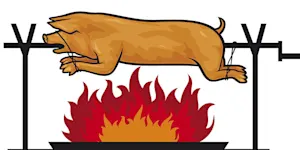What Makes This Word Tick
"Febrile" is all about heat—specifically, the fever-induced kind. It's a term often used in medical contexts to describe symptoms relating to or characterized by fever. So, if someone's body temperature is spiking, they might be described as febrile, capturing the fiery fight their body is waging against an infection.
If Febrile Were a Person…
Imagine Febrile as a somewhat dramatic but well-meaning nurse, bustling about with a thermometer in hand. They're attentive, always sensing when things are heating up. With a constant eye on the temperature, Febrile isn’t one for subtlety—when they're around, you feel it!
How This Word Has Changed Over Time
Originally from the Latin "febrilis," the word hasn't strayed far from its roots. While it maintains its connection to fever, over time, "febrile" has also taken on a metaphorical sense, describing an intense emotional state. Picture a passionate artist in the grips of inspiration—that’s febrile energy, too.
Old Sayings and Proverbs That Use Febrile
Though there's no old proverb that directly uses "febrile," you might think of timeless advice like "Keep your cool," which contrasts nicely against the word's core meaning of heat and feverishness. It's a reminder of the balance we aim for, between the fiery and the calm.
Surprising Facts About Febrile
Did you know that febrile seizures occur mostly in young children and are usually harmless, despite their alarming appearance? It turns out, even something as concerning as a fever can have its quirks and complexities. "Febrile" covers all temperature-related phenomena, from mundane to mysterious.
Out and About With This Word
The word "febrile" lurks in hospitals and doctors’ offices but don't be surprised to find it in spirited discussions or debates. When tempers flare, and voices rise, things can get a bit febrile, injecting a bit of feverish intensity into the mix.
Pop Culture Moments Where Febrile Was Used
While "febrile" isn't the darling of pop song lyrics or movie scripts, its cousin "fever" sure is! Johnny Cash sang of a "Burning Ring of Fire," and Peggy Lee's iconic "Fever" captures that same heat. When stakes are high, the febrile energy is just a blink away.
The Word in Literature
In literature, "febrile" might sneak into the suspenseful moments of a thriller novel, where tension peaks and emotions run amok. Authors use it to draw readers into the intensity of a scene, offering a vivid sensory detail that heightens the drama.
Moments in History with Febrile
Witnessing the French Revolution, one might say the atmosphere was febrile with change and fervor. From our vantage point, major historical shifts often seem fueled by a febrile mix of passion and purpose—an upheaval burning bright and hot.
This Word Around the World
The French "fébrile" sounds quite similar, while in Spanish, you'd hear "febril." Interestingly, both tap into the medical and emotional realms we associate with the English term. In Japan, the kanji 熱 (netsu) captures the fever idea, reflecting cultural nuances in how "febrile" might be communicated globally.
Where Does It Come From?
Coming to us from the mid-17th century, via French from Latin, "febrile" has held steady in its meaning through time. It's derived from "febris," the Latin word for fever—remarkably, "febra" even influenced the name of the month February due to the traditional purification rituals involving heat.
How People Misuse This Word
Some might mistakenly use "febrile" when they really mean "feral"—the latter describing something wild or untamed. Occasionally, folks might think any flurry of activity equals "febrile" energy, but true febrility implies a bit more heat, both literal and metaphorical.
Words It’s Often Confused With
Feverish: While both involve fever, "feverish" is more commonly used for day-to-day aches than "febrile."
Ferberize: A term from parenting circles for sleep training, often mixed up due to phonetic similarity.
Feral: As mentioned, for its wildness, but lacks the medical slant.
Additional Synonyms and Antonyms
Synonyms for "febrile" include "feverish," "heated," and "pyretic." Meanwhile, antonyms might be "calm," "cool," or "composed."
Want to Try It Out in a Sentence?
Here's a go—"The political climate was febrile, with debates surging through the halls of Congress like a fever refusing to break." It’s a word that communicates urgency and intensity, perfect when the stakes are high and emotions are aflame.
















